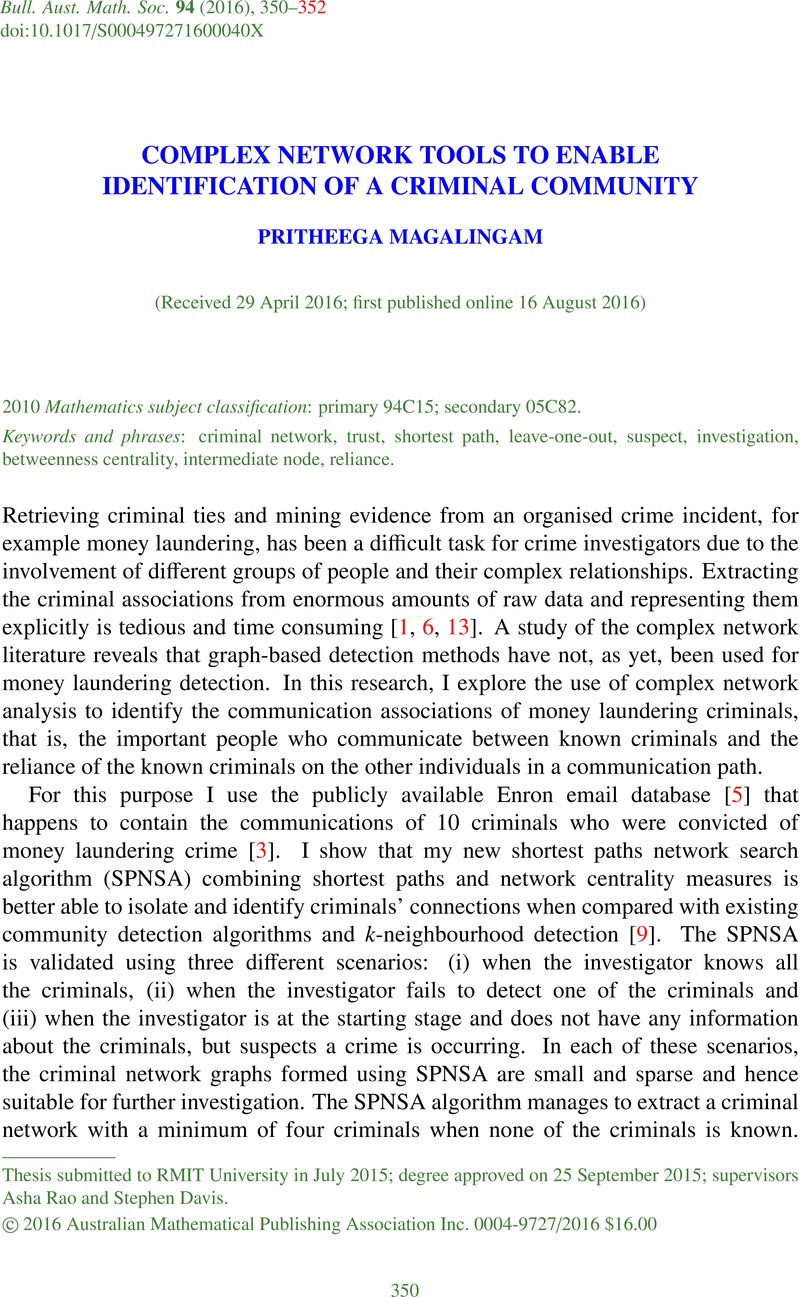Crossref Citations
This article has been cited by the following publications. This list is generated based on data provided by Crossref.
罗, 正国
2021.
A Relatively Important Node Mining Method and Its Application in Criminal Networks.
Computer Science and Application,
Vol. 11,
Issue. 12,
p.
3028.
Liu, Qian
Wang, Jian
Zhao, Zhidan
and
Zhao, Na
2022.
Relatively important nodes mining algorithm based on community detection and biased random walk with restart.
Physica A: Statistical Mechanics and its Applications,
Vol. 607,
Issue. ,
p.
128219.
Zhao, Na
Liu, Qian
Jing, Ming
Li, Jie
Zhao, Zhidan
and
Wang, Jian
2022.
DDMF: A Method for Mining Relatively Important Nodes Based on Distance Distribution and Multi-Index Fusion.
Applied Sciences,
Vol. 12,
Issue. 1,
p.
522.



